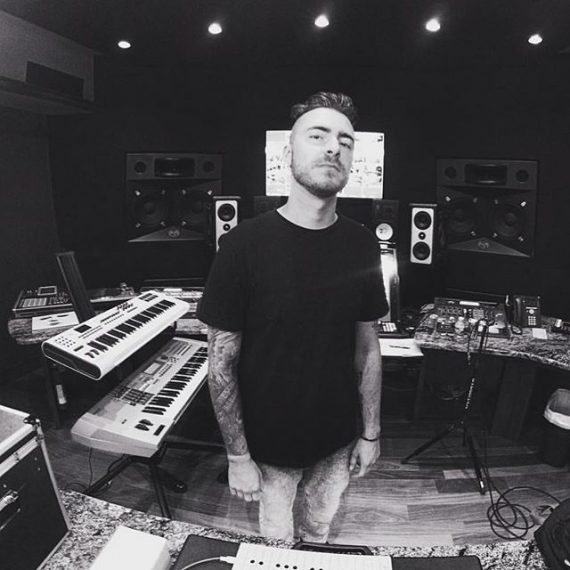“He’s Really Evolved”: Seven Details His Working History With Rittz
Sep 22 2017

Though Rittz new album is without features, that doesn’t mean there weren’t other hands helping to shape Last Call.
Perhaps the biggest influence on Rittz’ album was Strange Music’s resident producer, Michael “Seven” Summers, who produced over half of Last Call and helped forge the albums sound and direction.
That close relationship is nothing new for the two, as Seven has been around for Rittz’s entire Strange Music career and been contributing to his growth and development.
When we sat down with Seven to discuss his work on Last Call, it felt necessary to talk about his relationship with Rittz before this album. Which it turns out was an interview in and of itself.
What was your reaction when Rittz was signed? Were you familiar with him before?
Before Rittz was signed. I knew about him from what he did with Yelawolf and White Jesus, and I always thought he would fit well at Strange.
I can remember Dave Weiner [Strange Music Vice President] calling me before we signed and asking me what I thought and I was like “Absolutely 100%” even though I wasn’t a part of his first album, I was really excited about him being signed and I knew the second I got the opportunity, I wanted to work with him.
What is it that excites you about him?
I feel like he’s a super honest writer. Everything he writes is real. His whole vibe is something I connect to; the sound he captures is the essence of what I grew up on. What he’s influenced by is everything I was influenced by growing up. Same artists, producers, labels, and sounds that made me want to be a producer.
He’s unique. The kind of artist that has created his own sound. The kind of sound where if someone tries to do his sound it’s like ‘oh you’re taking from Rittz.” The originator of a certain lane. I love that.
Even though he chops he does it in his own unique way with his flows and cadences.
When you are producing for Rittz, what aspects of his style do you try to accentuate or highlight?
I’m always hoping something I do will inspire a topic he hasn’t talked about or a cadence he hasn’t done. I’m always hoping to challenge an artist. I wanted them to be challenging because a lot of the beats on this album were not easy beats to make; I went through so much making these.
So, for him to be challenged when writing, bringing something different out of him, that was sort of the point.
Do you remember the first song you did with him?
I think the “Crown Royal” was one of the first ones we did. When we were working on his second album, Next To Nothing, I did a lot of material for that.
How has he grown since then?
With every album it’s been so much growth. Especially when you hear this new album, you’ll hear a side of him. His writing. I never knew he would go there. It’s amazing. He’s really matured and some of the topics he wrote about– maybe he’s always wanted to write about this stuff and hadn’t maybe its growth–but whatever it is he’s really evolved.
That’s always the sign of a great artist, being able to evolve from album to album and this new album is the best I’ve ever heard him. Some next level shit for sure.
It’s important to understand the foundation of their relationship before really diving into Last Call, because, as you’ll learn from the second part of our interview with Seven (coming next week), that a working relationship, that foundation, had to be broken down in order to build Rittz’ most experimental album yet in Last Call.
CLICK HERE TO PRE-ORDER LAST CALL NOW!

